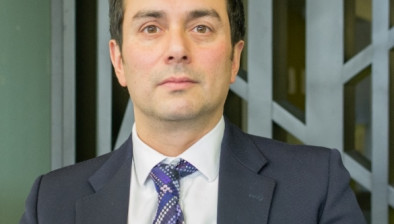Court of Appeal: Sentence appeal allowed on indecent assault case
The Court of Appeal has partially allowed an appeal, with regard to sentence, of a man who sexually abused two of his sisters.

About this case:
- Citation:[2020] IECA 170
- Judgment:
- Court:Court of Appeal
- Judge:Ms Justice Aileen Donnelly
Background
SM was convicted of five counts of indecent assault, committed when he was 14 or 15 years old, against his first sister, then aged 11 or 12 years old. He crept into her bedroom, naked, and masturbated himself whilst licking her vagina. This happened on at least five occasions. SM was also found guilty of one count of indecent assault on his second sister, by kissing the outside of her vagina and inserting his tongue into her vagina against her consent when she was aged 12 or 13 years old. He was 18 or 19 years old when he abused her.
He received one year’s imprisonment each in respect of the first three counts, to run concurrently. He received a further two years’ imprisonment for a further two counts against the first sister, to run concurrently to each other but consecutively to the term imposed in respect of the first three counts. For the offence against the second sister, he received two-and-a-half years’ imprisonment to run consecutively to Counts 4 and 5.
Prosecution and defence counsel had edited the interviews to exclude reference to any questions to which a ‘no comment’ answer had been given in accordance with the practice that has grown up since DPP v Finnerty [1999] 4 IR 364. No such evidence was therefore given by the Garda who was aware that it was expressly excluded.
Questions were put by defence counsel, however, which counsel for the DPP considered to be fundamentally inaccurate assertions. The prosecution sought to re-examine the witness, so that the jury would know that there were in fact questions SM did not answer. In her submissions, she wrongly asserted that it was put to the witness that SM “had answered freely”. In the course of his response, counsel for SM did not correct this mistake.
SM appealed against his conviction and his sentence.
He argued that the trial judge erred in admitting his ‘no comment’ answers during Garda detention. The judge allowed the prosecution’s re-examination of a Garda witness to elicit from her a number of questions and the ‘no comment’ answers made to those questions.
Court of Appeal
SM argued that the introduction of the ‘no comment’ answers was a breach of the right to silence. It was submitted that the trial court’s decision was based upon an erroneous view of the question asked. Counsel said that as he had not asked the Garda to confirm that SM had answered all questions freely, SM should not be penalised. Counsel said that his questioning had been designed to alert the jury to the fact that his client had answered questions. Ms Justice Aileen Donnelly said this “does not withstand even the slightest scrutiny. The jury had already listened to hours of questions and answers and they knew well that the appellant had been asked and answered many questions.”
The judge said that the reliance in the appeal on the erroneous attribution of the word “freely” was “entirely misplaced” as the application to adduce the no comment answers “was made by the prosecution because of the entire line of questioning by counsel” for SM. The court said that “a bright red line was crossed in this case. The jury were being told that this man had not exercised his right to silence when the true position was that he had so relied on this protected right at certain points in the interview.”
The court said that SM’s submissions that the rule in Finnerty is emphatic, that it is never possible to cross-examine on a defendant’s refusal to answer questions in the course of interview, cannot be a correct reading of DPP v KM [2018] IESC 21 and Finnerty. Such a reading would “permit and indeed encourage clear untruths to be presented to a jury by an accused without any fear of consequences. That would completely trammel the purpose of a criminal trial; the search for the truth bound by rules of evidence. It would amount to a travesty of justice.”
The court said that the constitutional right to a fair trial does not include the right to misrepresent facts: “Where an accused person raises the question of whether he remained silent in an interview, he is in effect waiving that aspect of his right to silence. He cannot both approbate and reprobate.”
On the issue of sentencing, the court cited DPP v SC [2019] IECA 348 where Ms Justice Isobel Kennedy noted that where there are several victims “courts are now inclined to impose a set of concurrent sentences in respect of the offences against each victim but to order those sets of sentences to run consecutively to each other. Otherwise an individual victim may feel that harm inflicted on him or has gone unpunished.”
Ms Justice Donnelly said that the abuse took place in a dysfunctional environment, in which “certain behaviour of the mother appeared facilitative of abuse”. SM relied on DPP v JH [2017] IECA 206 where it was remarked that in those circumstances a sentencing court was required to assess the offender’s level of maturity at the time of the commission of the offences and accordingly measure his culpability as of that time.
Conclusion
The court allowed the appeal on sentence to such an extent that the concurrent sentences of one year imposed in respect of the first three counts were now to run concurrently with the sentence imposed in respect of offences 4 and 5.
The sentence in respect of the offence committed against the second sister remained consecutive to the sentence imposed in respect of offences 4 and 5 as the judges were satisfied that the imposition of a consecutive sentence would not amount to a “crushing sentence”.












